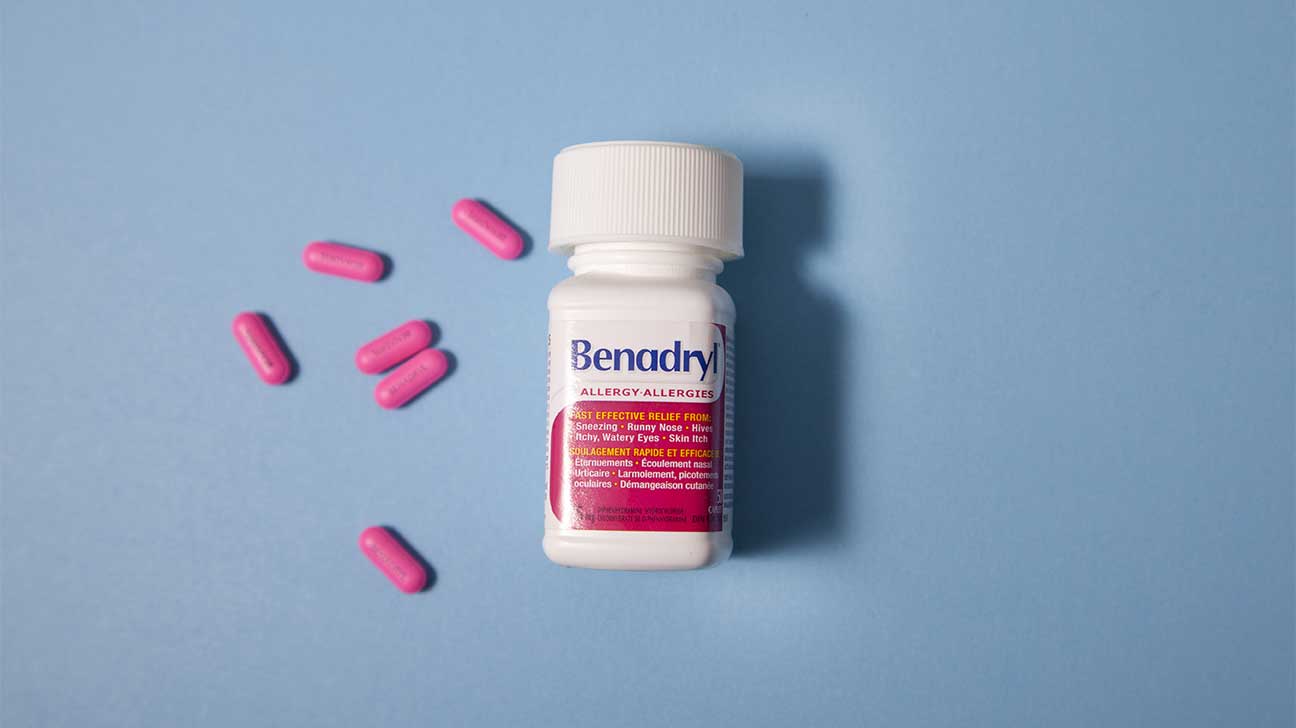
Benadryl is one of the most common and popularly used brand-name, over-the-counter antihistamine medications. The active ingredient, diphenhydramine, blocks the negative affect of allergens.
Because of the wide range of allergens and conditions that Benadryl can treat, it can be found in almost every household and be used as a sleeping pill or for treating anaphylactic shock.
Why People Snort Benadryl And The Benadryl Challenge
Benadryl’s general side effects of light sedation may, to some people, mimic the effects of low doses of muscle relaxants, alcohol, benzodiazepines, or opioids.
It is commonly used “off-label” as a sleep aid but is not commonly ingested intranasally. Most OTC medications containing diphenhydramine are only intended for oral consumption.
People that choose to snort Benadryl or other diphenhydramine-based medications do so in an effort to get hallucinogenic or euphoric feelings.
A person’s ability to achieve these effects depends largely on dosage. Negative side effects may offset any desired feelings of well-being that may result from a larger dosage.
The TikTok Benadryl “Challenge”
Teenagers’ desire to abuse Benadryl comes from a trend on the social media app, TikTok. This “challenge” encourages people to ingest large quantities of Benadryl to achieve hallucinogenic effects.
Since 2020 when challenge first went viral, some teens have chosen to snort crushed up diphenhydramine-based pills to get a more intense rush of effects.
But in April 2023, a 13-year-old boy died after ingesting several Benadryl pills because of the challenge. Taking too much Benadryl can also cause lasting damage, if not death.
Side Effects Of Snorting Benadryl
Benadryl has a long list of potential adverse effects with normal use including tachycardia, hypotension, and convulsions.
When a person takes too much Benadryl or crushes and snorts it, there can be both immediate and long-lasting effects.
Other effects of snorting drugs can include:
- upper respiratory infection
- throat and nasal damage
- hoarse voice
- damage to the mucous membrane
- pulmonary embolism
- loss of smell
Increased Risk Of Overdose
People that abuse Benadryl by ingesting large amounts of the drug are at an increased risk of overdose.
Serious overdose effects require immediate medical attention — especially in cases where seizures and respiratory distress are present. Brain damage can result from an untreated overdose.
Ingesting more than 500 mg of the drug can lead to delirium and hallucinations.
Signs of a Benadryl overdose can include:
- nausea/vomiting
- ringing ears
- blurred vision
- low blood pressure
- rapid heart rate
- extreme dry eyes
- enlarged pupils
- mood swings
- agitation
- depression
- restlessness
- nervousness/paranoia
- confusion
- loss of consciousness
- tremors
- loss of motor skills
Benadryl Addiction Impact On Mental Health
Regular use and addiction to Benadryl can lead to mental health symptoms that may carry into the long-term.
These effects may result from both the continued presence of the drug in the body and from the psychological impact of being without the substance.
Effects can include:
- difficulty concentrating
- anxiety
- mood swings
- confusion
- memory loss
- depression
- nightmares
- impatience
Treatment For Benadryl Addiction
If you or a loved on are misusing OTC medications, you can find help today. Take a look at the inpatient and outpatient substance treatment options available. Or call us to learn more about the recovery process.
Addiction Resource aims to provide only the most current, accurate information in regards to addiction and addiction treatment, which means we only reference the most credible sources available.
These include peer-reviewed journals, government entities and academic institutions, and leaders in addiction healthcare and advocacy. Learn more about how we safeguard our content by viewing our editorial policy.
- Medscape — Diphenhydramine
https://reference.medscape.com/drug/benadryl-nytol-diphenhydramine-343392 - U.S. National Library of Medicine: Medline Plus — Diphenhydramine
https://medlineplus.gov/druginfo/meds/a682539.html - U.S. National Library of Medicine: MedlinePlus — Diphenhydramine Overdose
https://medlineplus.gov/ency/article/002636.htm


